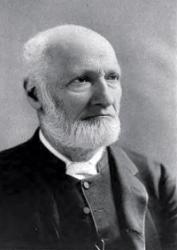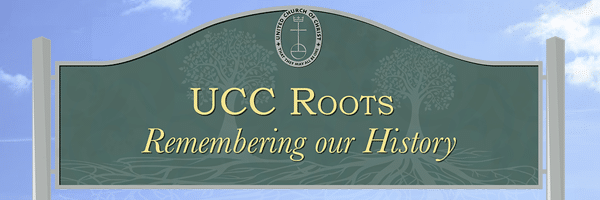Philip Schaff: A Christian Committed to Religious Liberty
Today, as views of religions are cultivating conflict, those of us in the United Church of Christ need to remember Philip Schaff (1819-1893). Schaff was born in Chur, Switzerland and educated in German universities. After finishing his studies in 1841, in 1843 he left Europe to teach at the German Reformed Theological Seminary in Mercersburg, Pennsylvania. Many of us know about the Mercersburg movement and the important writings of John Williamson Nevin and Philip Schaff (see the UCC Roots June 2018 essay about Nevin). Schaff helped develop the new liturgy and hymnal for the German Reformed Church in the 1850s and translated a new edition of the Heidelberg Catechism.

Unfortunately, Schaff’s work beyond Pennsylvania and Mercersburg is not well known. After the Civil War, he wrote a seven-volume history of the Christian Church, traveled in Europe and explored diverse understandings of religion. In 1870 he became a professor at Union Theological Seminary in New York City—teaching and writing about theology, scripture, and history until his death in 1893. In 1888, he founded the American Society of Church History which is still an active professional society.
In 1887 Schaff wrote book entitled Church and State in the United States: The American Idea of Religious Liberty and its Practical Effects. He argued that “our Constitution protects us against the despotism of a state church and guarantees to us the free exercise and enjoyment of religion, as an inherent, inviolable, and inalienable right.” Schaff believed that religion and liberty are inseparable, and both must be protected. The United Church of Christ upholds this legacy.
Contributor: Barbara Brown Zikmund
January 2020
Download the PDF
Related News
A Prophetic Call for Justice and Peace in Palestine
The executive leaders of the United Church of Christ have issued the following statement...
Read More‘Love is Greater Than Fear’: Regional Youth Events get to the heart of gospel message
United Church of Christ teens attending this summer’s Regional Youth Events (RYE) are...
Read MoreUCC desk calendars available to order now
Prepare for your day, month and year with the United Church of Christ desk calendar —...
Read More


